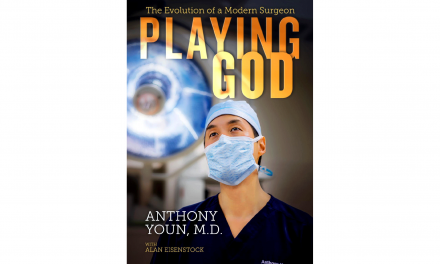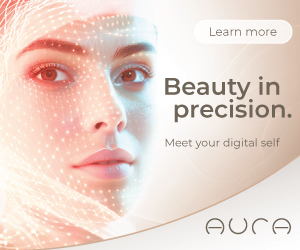Allergan plc, announced during the 16th Aesthetic & Anti-Aging Medicine World Congress (AMWC) in Monte Carlo, Monaco, results of its latest global survey, The Importance of Trust in Beauty, investigating the role of trust in medical aesthetics and what trust means to both patients and healthcare professionals.
The Importance of Trust in Beauty survey was completed by almost 18,000 consumers and 360 medical aesthetics professionals in 12 markets across the world and revealed that having trust in a product is important to ~75% (n=13,186) of consumers when considering an injectable toxin*.1,2 In fact, having trust in their injectable toxin* is ranked higher in importance to consumers than trust when having their first tattoo (72% n=5,369), getting semi-permanent make up (66% n=5,345) or taking out a mortgage (74% n=5,341).1 In addition, the survey also showed that although the majority of consumers say looking good is important to them (59% n=17,929) only 14% (n=17,929) research facial skincare products.1
Nadine Baggott, UK health and beauty journalist and television presenter, comments, “For many years I have been vocal about the importance of trust in your practitioner when considering or undergoing any medical aesthetics procedure. This survey from Allergan confirms that we need to continue to support consumers in researching their options so they identify the right practitioner for them, feel confident of the right questions to ask and can thereby overcome the fundamental fear and cultural taboo of questioning a health professional.”
Date of preparation: April 2018
Job number: INT/0149/2018e
From a healthcare professionals’ perspective, trust in brands and products is also important, with 61% (n=360) saying that having trust in a medical aesthetics brand makes them feel as though they will consistently achieve best results.2 Furthermore, 66% (n=360) of healthcare professionals believe a product manufactured by a well-known and trusted company is a key factor and 66% (n=360) state that clinical studies and long-term data of a product contribute to their trust of an injectable medical aesthetics brand.2
Dr Koenraad De Boulle, Dermatologist from Belgium, comments, “I often see patients who really lack confidence in their medical aesthetics decisions. They enter my consultation room and say, “I feel I look tired and my wrinkles bother me. I want to do something but I don’t know what I should do. I don’t want to look overdone, I want to look natural.” People sometimes don’t understand the treatments they are requesting with one patient saying “my friend had something injected into her wrinkles and lips and she looked great; could you do this for me…?” Part of my role, if not the most important part, is instilling confidence through education in treatments and products. I encourage consumers to do their research and ‘homework’ and by ensuring they are better informed, we can hope to build trust in their eyes, to help them achieve their desired look.”
In their last facial aesthetics consultation, only 34% (n=3,605) of consumers said they felt reassured by their healthcare professional that they would achieve the results they wanted from their medical aesthetics treatment, despite 45% (n=5,377) ranking reassurance in their top five most important factors for a consultation. In addition, only 38% (n=3,605) of consumers said their healthcare professional answered all their questions in their last facial aesthetics consultation.1
For those considering future facial aesthetics treatments, among the top five most important factors for a consultation with a healthcare professional included a knowledgeable doctor (53% n=5,377) and information provided about side effects and any complications (53% n=5,377) – further reiterating the need for increased knowledge and research in order to make the most informed decisions.1
“There is clearly an opportunity to accelerate education for both patients and healthcare professionals in the aesthetics industry. It is truly surprising to see that 70% of people research the options for phones before they buy one,3 yet only 14% (n=13,186) spend time researching facial skincare products1 that might be suitable for their specific needs. It is therefore not surprising that there is an opportunity to build trust in the aesthetics industry. We at Allergan are committed creating a world that makes the signs of aging a choice; a world where people can go beyond their DNA, no matter what challenges they are born with, whether cleft lip, or inverted chin, or something else. To enable the best outcomes, the building of confidence and trust in the decision making process for healthcare professionals and patients, we are committed to delivering continuously improving, best in class, progressive levels of education, for both healthcare professionals and patients,” comments Yana Ignatova, Senior Vice President, Head of International Strategic Marketing, International Commercial at Allergan.
See results: bit.ly/2q3WFmI





